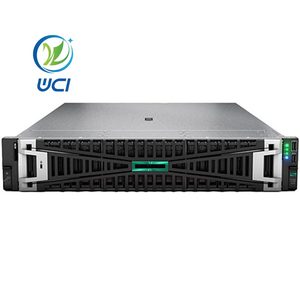
SuperMirco SYS-6049GP-TRT GPU SuperServer Rackmount 4U Chassis Max Memory 6TB PCIe Slots 21 X PCIe 3.0 Server


Hpe Dimm Hpe Ilo Server Computer New Original Server HPE ProLiant DL580 G10 With Intel Xeon Gold 6152 4U Rack Server























Computer servers are the backbone of modern digital infrastructure, playing a pivotal role in data management and online services. From network server operations to complex cloud computing, these powerful machines facilitate a myriad of tasks across various industries. This introduction delves into the diverse types of servers, their applications, and the features that distinguish them in a competitive market.
The landscape of computer servers is rich with specialized options tailored to different needs. Home servers offer individuals a personal domain for file sharing and media streaming, while gpu server configurations provide the necessary horsepower for intensive graphic processing tasks. In business environments, server pc setups are crucial for handling corporate operations, ranging from basic file-sharing to handling complex databases and applications.
A server's capability is largely determined by its hardware components. The server motherboard acts as the central hub, connecting all other components and determining the server's overall speed and efficiency. For those requiring enhanced security and performance, blade servers offer a compact and scalable solution, allowing for multiple server blades within a single chassis. Meanwhile, the server chassis itself is designed to protect and cool the internal components, ensuring reliable operation under various loads.
Advancements in server technology have led to more robust and flexible solutions. Clouding server technology, for instance, enables data and resources to be distributed across multiple servers in the cloud, enhancing reliability and scalability. This is particularly beneficial for businesses that experience fluctuating demands, as resources can be dynamically allocated to meet changing needs without the requirement for physical hardware adjustments.
Efficient data transfer and synchronization are critical for maintaining operational continuity. Network time protocol servers ensure that all devices within a network are accurately synchronized, which is essential for time-sensitive transactions and operations. For data transfer, file transfer protocol servers facilitate the smooth exchange of information, making them an integral component for collaborative environments and data management systems.
Selecting the appropriate server is a decision that should be based on specific use cases and requirements. Whether it's a network server rack for organizing multiple servers, a network rack mount for space efficiency, or a specialized hp server pc for enterprise-level tasks, the market offers a variety of options. It's essential to assess the server's compatibility with intended applications and the potential for future scalability to ensure a sustainable investment.